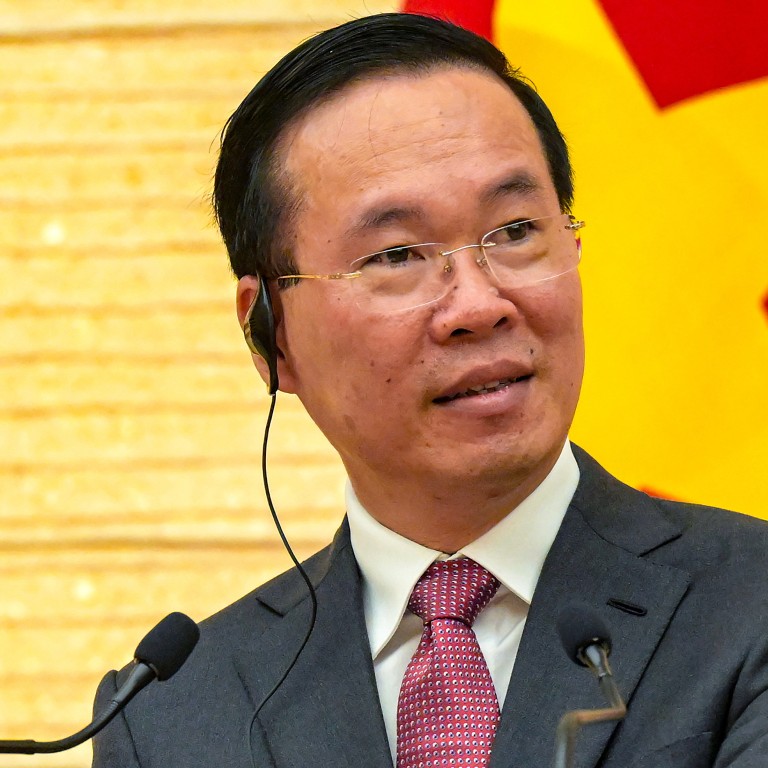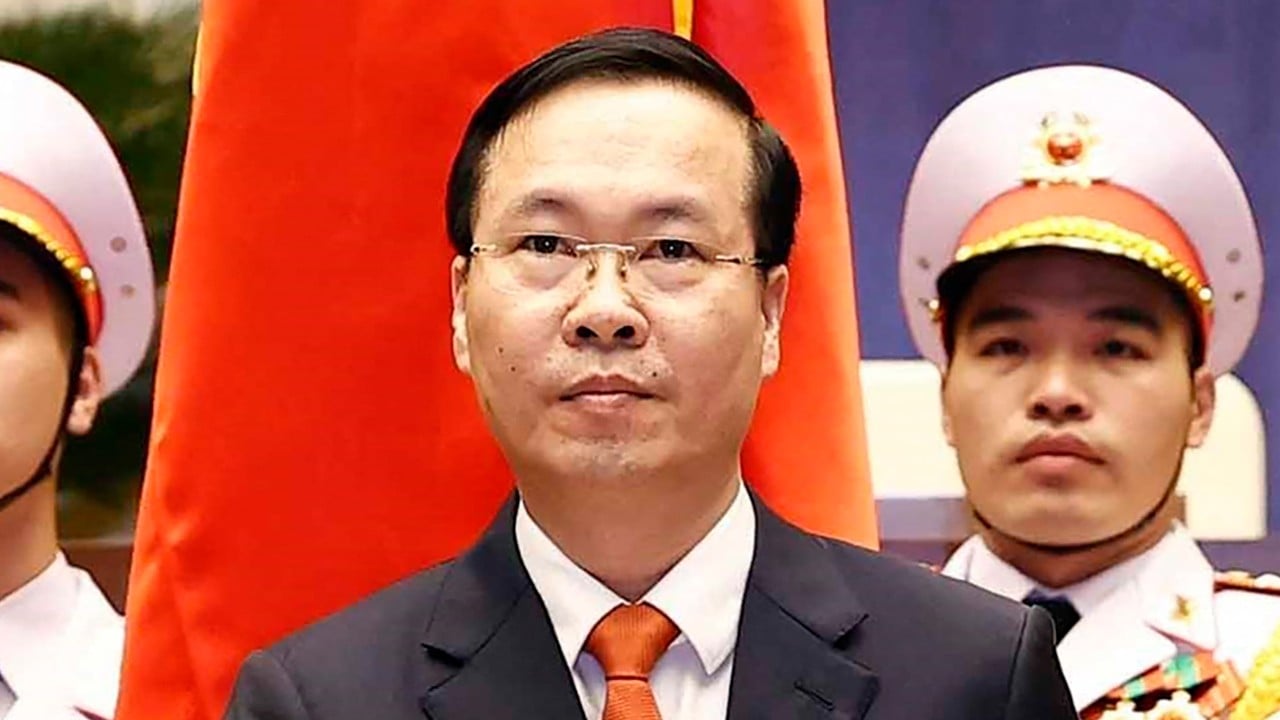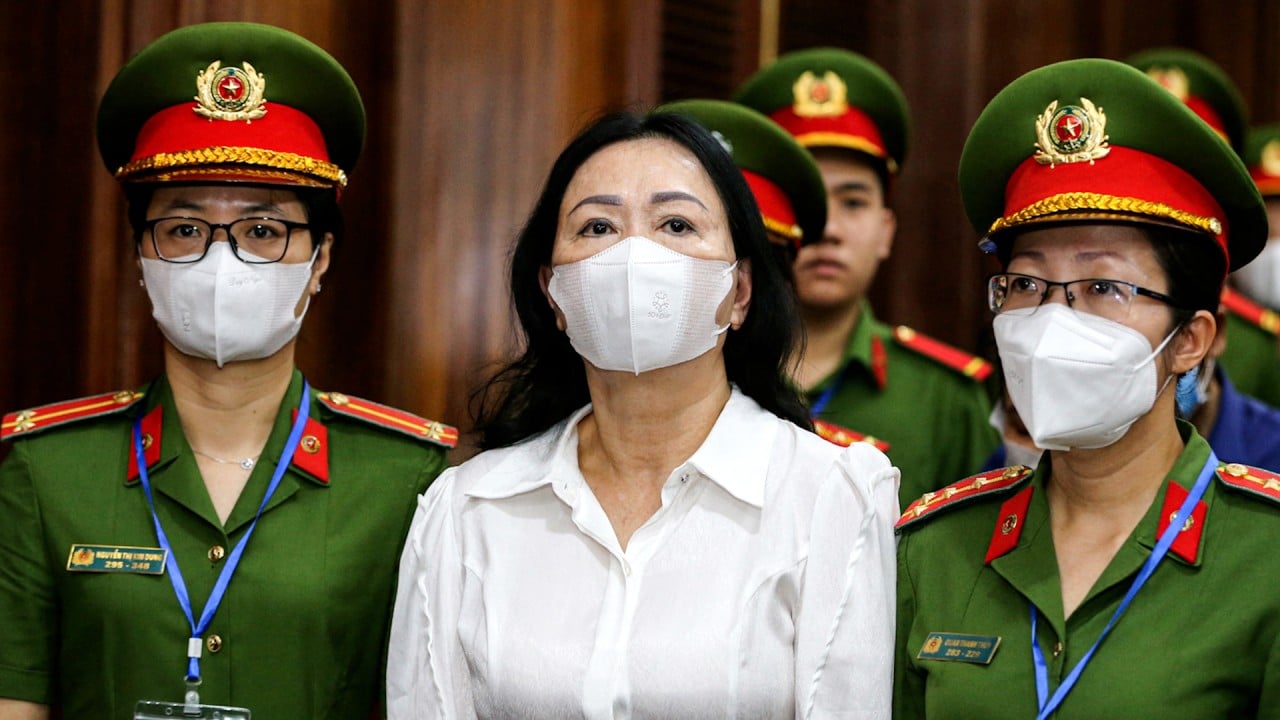
Removal of Vietnamese president Vo Van Thuong raises concerns over stability, but ties with China expected to remain stable
- Vo Van Thuong has been effectively dismissed after just 14 months in the top job, raising concerns about the country’s future direction
- His ‘removal is of great concern to everyone’, according to one observer, but the trend of improving relations with Beijing is expected to continue
Vo Van Thuong became the second Vietnamese president to step down in 14 months following a vote by the National Assembly in a closed session at an extraordinary meeting, state media reported.
While details about his effective dismissal remain unclear, Thuong was allowed to tender his resignation. The Communist Party’s official statement said “violations by Vo Van Thuong have left a bad mark on the reputation of the Communist Party” – a comment widely understood to refer to corruption.
Thuong became president just 14 months ago after the departure in similar circumstances of Nguyen Xuan Phuc in January last year due to what were described as “violations and wrongdoing” by officials under his control.
Thuong, 53, was the youngest member of the Politburo and widely seen as a protégé of Vietnam’s top leader Nguyen Phu Trong, who secured a third term as party general secretary in 2021 despite his widely rumoured health issues.
Some analysts have described the move as a political earthquake and scores of other officials have been removed in the country’s current anti-corruption campaign.
China allows more durian from Vietnam, underpinning ‘codependency’ in trade ties
Nguyen Khac Giang, a visiting fellow with the Vietnam studies programme at the ISEAS-Yusof Ishak Institute in Singapore, said despite the limits on the president’s powers, Thuong’s unexpected resignation has sent shock waves through the political system.
“Thuong’s departure signals the intensifying of the internal fighting ahead of the next Party Congress [in 2026], he said, noting four members of the Politburo had been removed from their positions since 2021.
A researcher from the government-linked Chinese Academy of Social Sciences (CASS), who spoke on condition of anonymity, said Thuong’s case caught many by surprise and would inevitably raise concerns about the country’s stability.
“He’d been groomed as Trong’s successor and his high-profile removal is of great concern to everyone. But I don’t think his departure will affect bilateral ties between Vietnam and China, which have been on the mend since last year,” said the researcher.
The country has emerged in recent years as a key forum for the rivalry between the United States and China, with both seeking closer ties with Hanoi at the expense of the other.
Vietnam, for its part, continues to seek Chinese investment and economic cooperation but is increasingly looking to the US to counter Beijing in its ongoing territorial dispute in the South China Sea.
“Xi’s visit has set the tone for the future of bilateral ties for the years to come. And given Trong’s status and stable control over the country, I don’t really think we need to worry too much about Vietnam’s overall stability,” said the researcher.
They also argued: “The two countries still need each other politically to counter perceived threats of ‘colour revolution’ from the West. Thuong was only elevated to the role a year ago and his personal influence on domestic and foreign affairs has not been that great.”
But the South China Sea remains a major barrier to better relations between the two neighbours
“China pays particular attention to Vietnam because it is the country that has the most serious vacillation on the South China Sea issue besides the Philippines,” said the analyst.
Zhang Mingliang, a regional affairs specialist at Jinan University in Guangzhou, said while Thuong’s removal made his presidential term the shortest in the country’s recent history, it was not the first time that Trong’s possible successors have fallen foul of the anti-corruption campaign.
“It will not have much impact on Vietnam’s foreign policy. But given the opacity of Vietnam’s politics, such abrupt high-level personnel changes will inevitably have affected foreign investors’ perceptions of the country’s investment environment,” he said.
Hanoi’s low-key approach may be central to muted confrontations with Beijing
The CASS researcher agreed, but said it could be good news for China amid the competition between Beijing and Hanoi in the restructuring of global supply chains. “It is not necessarily a negative signal for China, and I actually think it is a pretty good sign for the investment climate here in China.”
Zhang noted that Vietnam’s head of the party’s external relations department Le Hoai Trung visited China this week.
“It is unlikely for Hanoi to communicate the contentious personnel issues with Beijing, which is considered a taboo, despite their special party-to-party ties,” he said.
Carl Thayer, emeritus professor at the University of New South Wales in Australia and a Southeast Asia specialist, said Hanoi was unlikely to overhaul its foreign policy.
“Vietnam’s foreign policy orientations … are firmly set in stone and will not alter. What will change is Vietnam’s engagement with its four new comprehensive strategic partners – South Korea, United States, Japan and Australia. The key here is economic relations, trade and investment and science and technology innovation. China will have to lift its game to retain influence in Vietnam,” he said.
Zhang said although “bilateral ties have improved in the past few months, compared with the low point” at the time of Biden’s visit, relations are still cool and the South China Sea dispute remains a major problem.
Vietnam, Philippines agree to boost South China Sea coastguard cooperation
“Based on past experience. Sino-Vietnamese ties are prone to interruptions,” said Zhang, who added that Beijing would need to tread a careful line in its response to Thuong’s downfall given these sensitivities.
The Chinese foreign ministry has yet to comment on Thuong’s removal.



